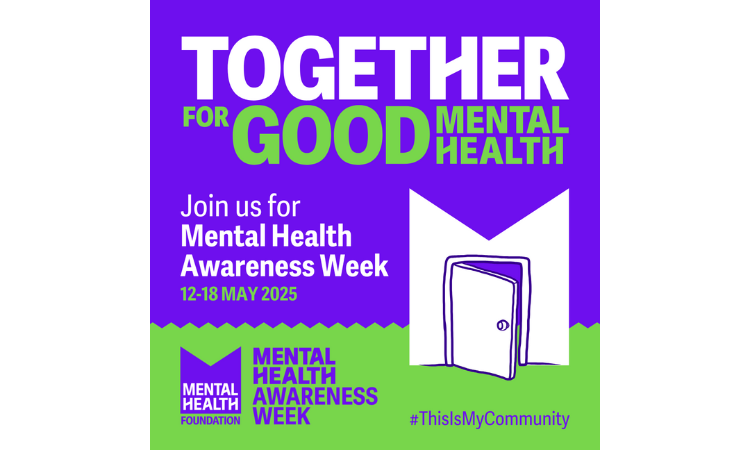Mental Health Awareness Week

The focus of Mental Health Awareness Week this year is 'Community'. This week pupils in Years 9 and 10 were introduced to the philosophy of Epicurus, who made friendship and community one of the cornerstones of his recipe for a happy life. He argued the people will often seek to meet their psychological needs through material goods and luxuries, when friendships, reading and conversation provide the real route to personal fulfilment and happiness.
The Mental Health Foundation have provided 10 tips for building a sense of community, pointing out that being part of a community can make life feel more meaningful and enjoyable, help us feel happier and safer, and improve our mental health.
1. Make it fun
One of the best ways to connect with others is by doing activities you enjoy. Join a club or group that focuses on your interests, like sports, music, reading or gaming. You’ll likely meet people who enjoy the same things as you.
2. Get outdoors
Spending time outdoors can help you move more, which can improve your physical and mental health. You can also get the added benefits that come with being close to nature. And, it opens up chances for casual social interactions. Go for walks, join a running or cycling group, or spend time in a community garden to feel more connected.
3. Find like-minded people
Look for groups that match your interests, beliefs, faith or values, as it’s easier to start conversations with people who have similar views. But don’t be afraid to meet people who are different, too. Connecting with a variety of people can help you learn and grow!
4. Show kindness to others
Simple acts of kindness can help you feel like you belong. Chatting with your neighbours, greeting people at your local café, or starting a conversation at the bus stop can lead to new friendships. Small acts of kindness, like helping someone with their shopping or smiling at people you pass, can also make you feel more connected and spread positivity.
5. Show your appreciation
We often think kind things about others but don’t always say them. Letting people know you appreciate them can strengthen friendships and help you make new ones.
6. Become part of an online community
In-person socialising may be difficult for some people, such as those with mobility issues, social anxiety, or limited time because of a busy work and home life. In these situations, online communities can be a great alternative.
But before searching for online communities, it’s important to know that not all online communities are good for your mental health. A healthy community should make you feel safe, valued and connected, not drained and anxious. Be mindful of spaces that promote hate, unrealistic beauty standards or harmful behaviours. It can help to ask yourself:
- Does this community align with my values?
- Does it support my wellbeing?
If not, it’s okay to leave, block or mute the community.
7. Volunteer or give to charity
Helping others can build a sense of community and give you purpose. Volunteering at food banks, local charity shops or animal rescue centres can lower your stress and make you feel happier.
8. Care for your local community
Taking care of your environment can make you feel more connected. Joining in on litter pick-ups, community gardening or organising local events are great ways to meet people and feel part of where you live.
9. Welcome new members to your community
New people often want to make connections, so try introducing yourself to newcomers. You could:
- say “Hello” to a new neighbour
- introduce yourself to a new work colleague
- invite someone new to a community event
- offer local recommendations to someone who’s just moved to the area
10. Find peer support groups if you’re struggling.
If you’re going through a difficult time, connecting with others who’ve had similar experiences can be really helpful. Peer support groups can provide comfort and reassurance and remind you that you’re not alone.

